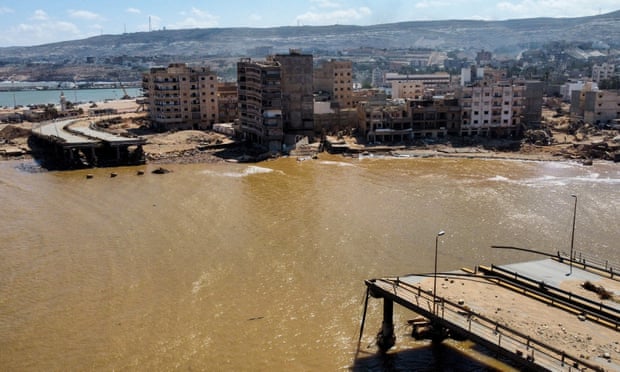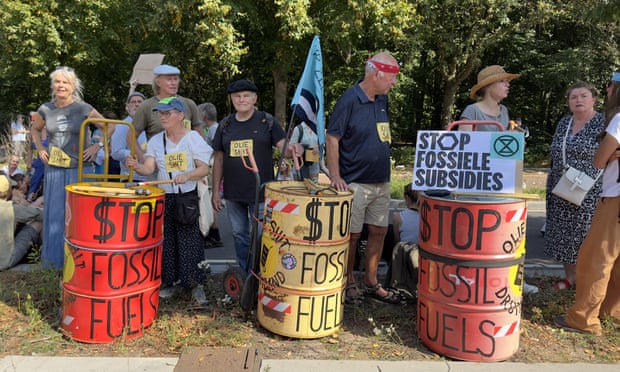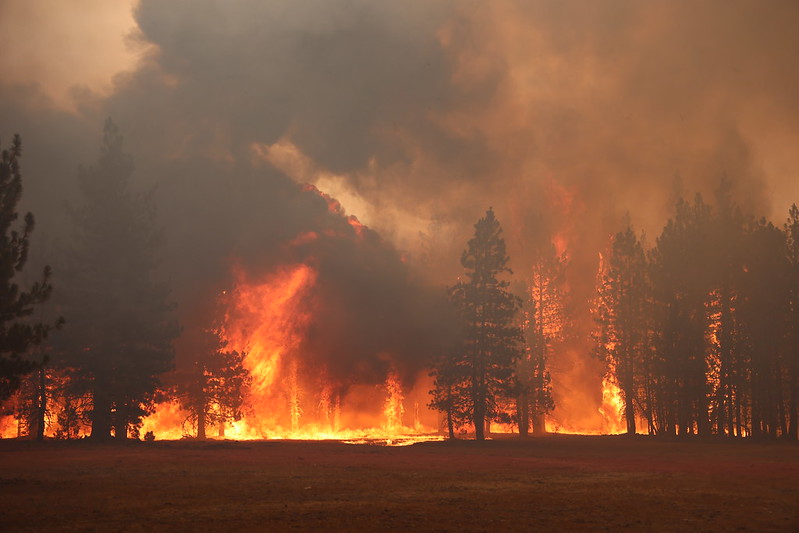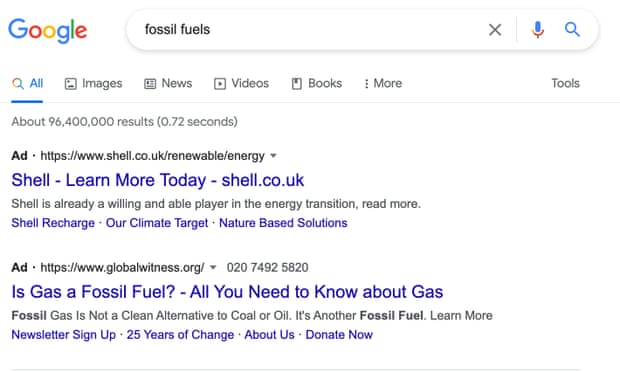World will look back at 2023 as year humanity exposed its inability to tackle climate crisis, scientists say
the Guardian
Disastrous events included flash flooding in Africa and wildfires in Europe and North America. (...)
“When our children and grandchildren look back at the history of human-made climate change, this year and next will be seen as the turning point at which the futility of governments in dealing with climate change was finally exposed,” he said. “Not only did governments fail to stem global warming, the rate of global warming actually accelerated.” (...)
(Text continues underneath the photo.)

Flash floods in the Libyan city of Derna were the most deadly climate disaster of 2023, killing 11,300 people. Photograph: Mahmud Turkia/AFP/Getty Images.
“The bright side of this clear dichotomy is that young people may realise that they must take charge of their future. The turbulent status of today’s politics may provide opportunity,” he said.
His comments are a reflection of the dismay among experts at the enormous gulf between scientific warnings and political action. It has taken almost 30 years for world leaders to acknowledge that fossil fuels are to blame for the climate crisis, yet this year’s United Nations Cop28 summit in Dubai ended with a limp and vague call for a “transition away” from them, even as evidence grows that the world is already heating to dangerous levels. (...)
Veteran climate watchers have been horrified at the pace of change. “The climate year 2023 is nothing but shocking, in terms of the strength of climate occurrences, from heatwaves, droughts, floods and fires, to rate of ice melt and temperature anomalies particularly in the ocean,” Prof Johan Rockström, the joint director of the Potsdam Institute for Climate Impact Research in Germany, said.
He said these new developments indicated the Earth was in uncharted territory and under siege. (...)
[W]hat disturbed him most in 2023 was the sharp increase in sea surface temperatures, which have been abrupt even for an El Niño year. (...)
In the Antarctic, scientists have also been perplexed and worried by the pace of change. (...)
[H]uman influence – through the burning of fossil fuels – had also created “frightening” dynamics between the poles and the tropics. Cold wet fronts from the Antarctic had interacted with record heat and drought in the Amazon to create unprecedented storms in between. (...)
This year’s deadliest climate disaster was the flood in Libya that killed more than 11,300 people in the coastal city of Derna. In a single day, Storm Daniel unleashed 200 times as much rain as usually falls on the city in the entire month of September. (...)
Forest fires burned a record area in Canada and Europe, and killed about 100 people in Lahaina on Maui island, the deadliest wildfire in US history, which happened in August. (...)
Tags: #climate #climate_change #climate_crisis #energy #energy_transition #carbon_footprint #global_warming #fossil_fuel #extreme_weather #storms #floodings #flash_floods #forest_fires #wildfires #heat_waves #cop28






